Guardium 7 – database security review
With database attacks on the increase Guardium can make sure businesses don’t get caught with their pants down.
Regulatory compliance isn’t just about protecting databases but also about having laid down reporting and data access auditing procedures that can be enforced. Guardium is capable of ensuring consistent practices can be maintained across multiple databases and provides the tools to safeguard them and ensure their integrity.

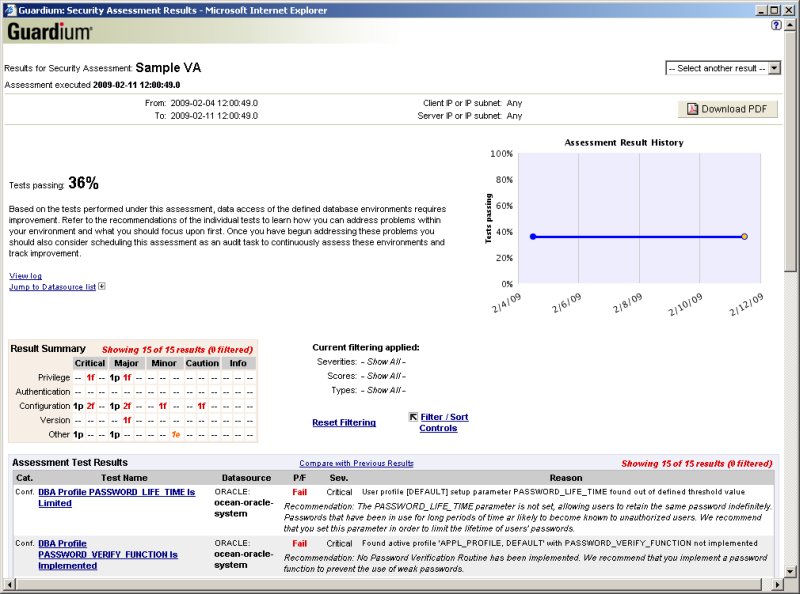
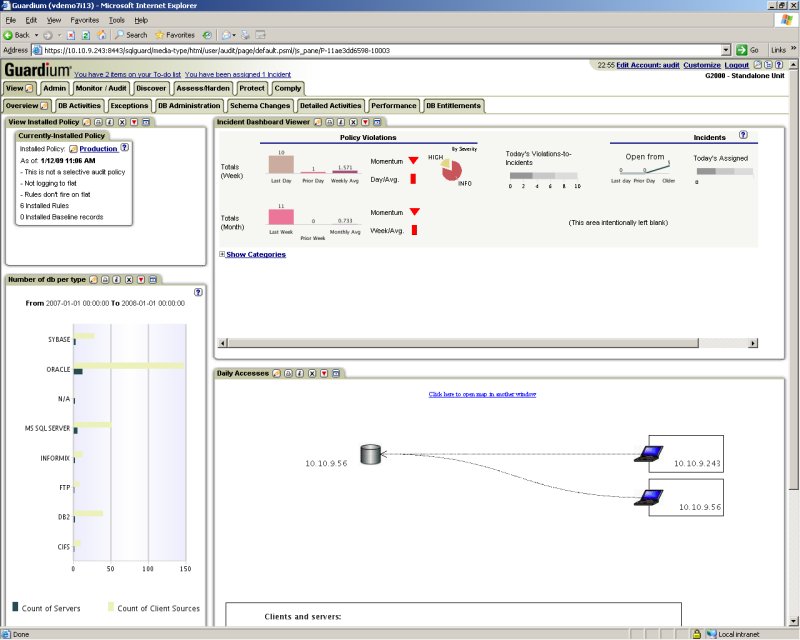
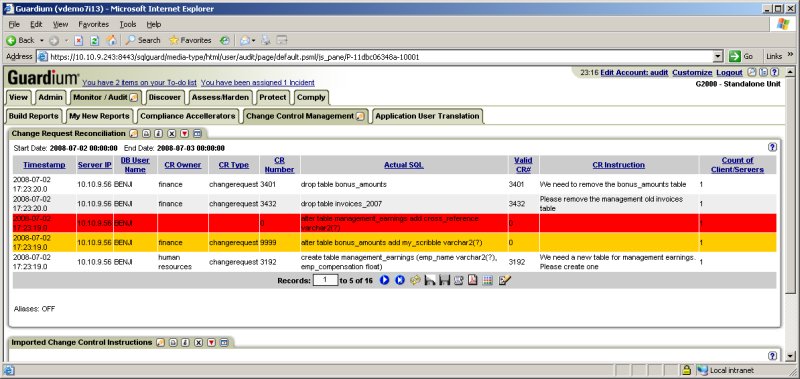
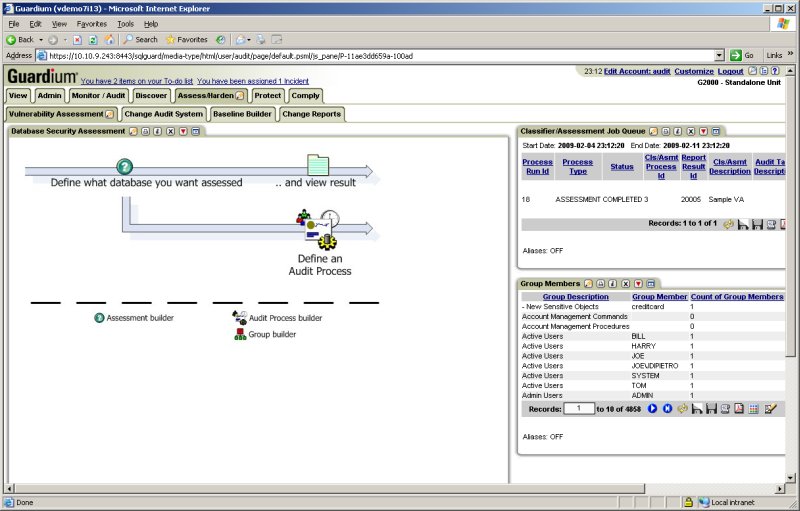
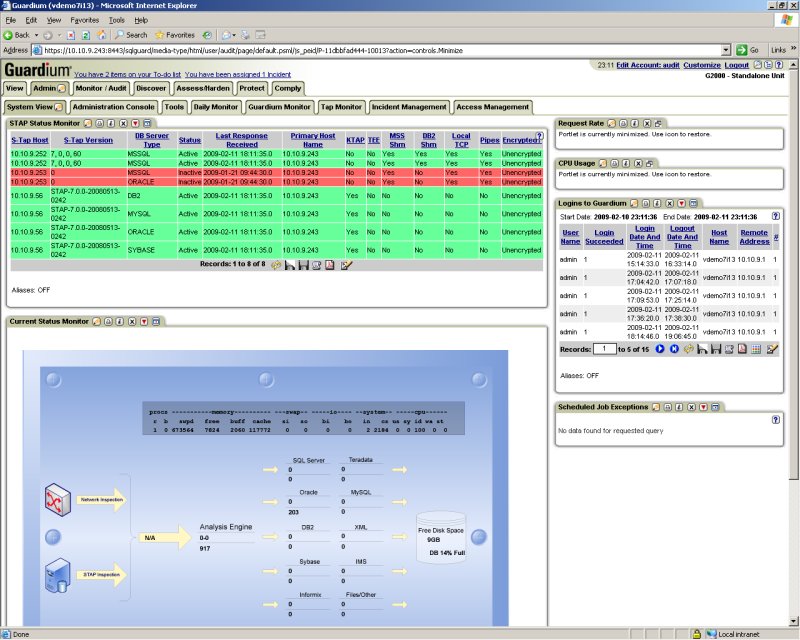
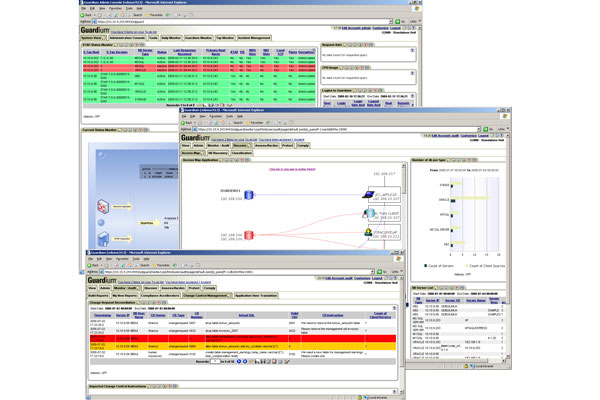
Guardium 7
Businesses have a legal obligation to protect personal and sensitive information in their databases and yet it is truly stunning how many are still failing to comply with regulatory guidelines. It's now a well known fact that SQL injection attacks are increasing massively thanks to freely available hacker kits and this year has started with security company Kasperksy ironically having one of its customer databases hacked into.
There's certainly no shortage of database security products on the market and Guardium has traditionally offered an impressive array of defences against these types of attacks and more. Deployed as a well specified Dell PowerEdge 1950 appliance, it provides database monitoring and auditing plus security policy enforcement for blocking unauthorised access.
On review we have the very latest Guardium 7, which delivers a number of valuable new features, not least of which is its database vulnerability assessment. It also introduces the new S-Gate probe, which can block unauthorized traffic and terminate user sessions. At its foundation is Guardium's S-Tap probe, which is installed on the database servers themselves, enabling it to monitor local and network traffic.
You can implement basic port spanning to monitor DBMS traffic but Guardium's probes are far more sophisticated and, unlike many competing solutions, don't need database logging enabled. Furthermore, they don't interfere with database application traffic as they are designed to interact only with privileged user traffic such as administrators accessing database tables.
For testing we employed a Boston Supermicro dual 3GHz Xeon 5160 server to run three VMware virtual machines. The first had Windows Server 2003 R2 with SQL Server 2000 and 2005, the second offered up Red Hat Linux loaded with Oracle 10G R2, MySQL and Sybase 15.4, whilst the third handled Guardium itself.
Guardium scales well with demand as smaller businesses with modest database traffic would use a single appliance as a Collector. Enterprises with multiple, distributed databases can use a number of Collectors all managed by an Aggregator appliance that provides centralized management and audit collection facilities.
The web interface is very intuitive and can be customized for your various administrators and auditors. A range of preconfigured interfaces for data privacy regulations and compliancy guidelines such as PCI and SOX are also provided by Guardium.
Get the ITPro daily newsletter
Sign up today and you will receive a free copy of our Future Focus 2025 report - the leading guidance on AI, cybersecurity and other IT challenges as per 700+ senior executives
Dave is an IT consultant and freelance journalist specialising in hands-on reviews of computer networking products covering all market sectors from small businesses to enterprises. Founder of Binary Testing Ltd – the UK’s premier independent network testing laboratory - Dave has over 45 years of experience in the IT industry.
Dave has produced many thousands of in-depth business networking product reviews from his lab which have been reproduced globally. Writing for ITPro and its sister title, PC Pro, he covers all areas of business IT infrastructure, including servers, storage, network security, data protection, cloud, infrastructure and services.
-
 ‘Phishing kits are a force multiplier': Cheap cyber crime kits can be bought on the dark web for less than $25 – and experts warn it’s lowering the barrier of entry for amateur hackers
‘Phishing kits are a force multiplier': Cheap cyber crime kits can be bought on the dark web for less than $25 – and experts warn it’s lowering the barrier of entry for amateur hackersNews Research from NordVPN shows phishing kits are now widely available on the dark web and via messaging apps like Telegram, and are often selling for less than $25.
By Emma Woollacott Published
-
 Redis unveils new tools for developers working on AI applications
Redis unveils new tools for developers working on AI applicationsNews Redis has announced new tools aimed at making it easier for AI developers to build applications and optimize large language model (LLM) outputs.
By Ross Kelly Published
-
 Google layoffs continue with "hundreds" cut from Chrome, Android, and Pixel teams
Google layoffs continue with "hundreds" cut from Chrome, Android, and Pixel teamsNews The tech giant's efficiency drive enters a third year with devices teams the latest target
By Bobby Hellard Published